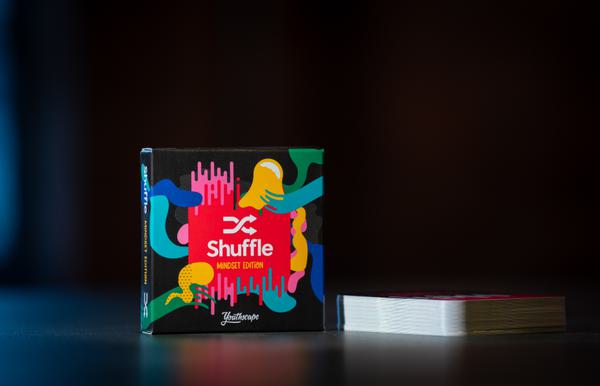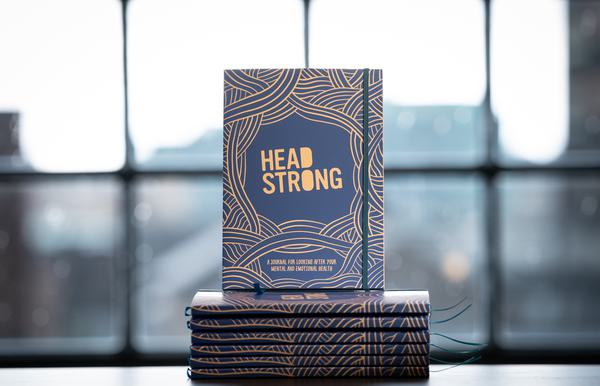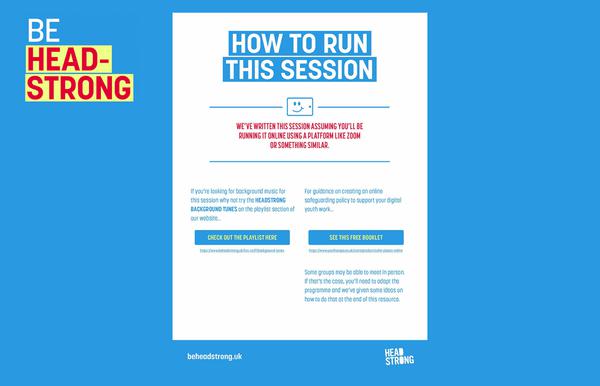As Mental Health Awareness Month comes to a close, here’s three practical, accessible ideas for helping young people in their mental and emotional wellbeing.
Rollercoasters: some people love them, others hate them. Every up and down, every twist and turn can fill some with exhilaration and others terror. You just never know what’s coming next! This last year has been an emotional rollercoaster and while some might have coped better than others, everyone is ready to get off now.
It’s been a difficult year to process mentally. There’s been so much loss, so much pain but also excitement and joy when restrictions have eased, and life has seemed to be getting back to normal. Young people have been thrown about in this rollercoaster just as much as the rest of us and as we move out of lockdown and normal activities resume, we (as youth leaders) need to know how best to help young people process everything that just happened and support them through this transition period.
There’s a lot of really great and necessary conversations happening right now around supporting young people’s mental health, with particular reference to mental illness. While mental illness is definitely the reality for some young people, for many others they just need support in dealing with very normal emotions and reactions to a very abnormal year. Mental wellbeing is about coping with the ups and downs of everyday life and the emotions and feelings you experience day-to-day.
So here are three top tips for how to support young people’s mental wellbeing:
1. Create space for conversation
Whatever your youth ministry context, be intentional in giving young people the opportunity to talk about how they are feeling. Create spaces where they feel safe and comfortable. Young people will often shy away from conversations where they feel in the spotlight so make the atmosphere much more relaxed. Maybe try dimmer lighting, non-verbal activities, background music, making the area more of a hangout space, etc. Don’t rush conversation – create moments of peace and calm where young people can connect with themselves and what they are feeling before being asked to share or offered the opportunity to chat.
When having conversations, talk 1-on-1 with young people or in smalls groups of two or three. Make sure the young people are in groups with people they feel comfortable sharing with. It could be a good idea to plan some conversation content or questions but still make sure to leave lots of space to chat. Ask them what’s going on in their lives and how they feel about the events of the past year. Be open with them and share some of the things you’ve found difficult to deal with as a result of the pandemic and what you have done / do to get through tough times.
"Dealing with this transition – from complete lockdown to minimal restrictions – can be pretty overwhelming for young people. There’s a lot of contradicting emotions at work."
If you’re looking for ways to engage young people through challenges and games or tell them positive stories of people dealing with difficult emotions, checkout some ideas on beheadstrong.uk. Headstrong is a site full of fun activities and helpful advice designed to support young people’s mental wellbeing. While it’s a useful platform to go for pointers as a youth leader, it’s an even better platform to encourage young people to visit and explore themselves. Headstrong is aimed at young people and full of great content from a team of Christian youth work and mental health professionals.

2. Give practical advice
Dealing with this transition – moving from complete lockdown to minimal restrictions – can be pretty overwhelming for young people. There’s a lot of contradicting emotions at work. Excitement at seeing friends again; nervousness over reconnecting with people; happiness at being able to do the things they love; sadness over everything that’s been lost this year; hopefulness at having more freedom and not having to stay home; anxiety at the possibility of catching the virus and causing friends/family to get sick too. These are all totally normal emotions, and its important young people know that! However, they might need a little help understanding what they’re feeling and knowing how best to manage those emotions.
Dr Kate Middleton, from the Mind and Soul Foundation and Youthscape’s Headstrong programme, has three key practical pointers for youth leaders to share with their young people when life gets overwhelming, and our emotions feel out of control.
- Take control! Humans need to feel in control, that’s part of our DNA, and lockdown and pandemic have really messed with it. And so much of life is about situations where we might not have control. As teens you have to go to school but as adults we have to work or get on with things we often don’t want to do. So, managing moments where we CAN’T change things is a key skill! If life feels chaotic and crazy use your need for control to lift your mood. Try restoring order somewhere – maybe you could tidy a drawer or pair socks or sort Lego into colours. Or try and complete something – do a puzzle or a craft, or get something done you’ve been putting off for ages. Or go for an achievement – do a good walk or run or finish a piece of homework – something that makes you feel that sense of having GOT SOMEWHERE! It will lift your mood - and might mean you then feel more able to do something else you HAVE to do - like school, exams etc.
- Endorphins are your friend! When life is tough and we need a lift, or to relax and balance stress and stuff, endorphins are your brains happy hormones which do just that. Trigger them by:
- Exercising – 30 mins or more of working hard enough to build up a bit of a sweat (tip: if you can hold a coffee without spilling it you probably aren’t working hard enough to release endorphins!).
- Connecting with friends – chat is good, or if it is safe to do so, and with just the people you’re closest to HAVE A HUG now you can!!!
- Pursue joy! Nehemiah says joy is your strength and the Hebrew there means it is your tower, place of protection, somewhere to retreat to in tough or stormy times. And learning what makes YOU feel good, what triggers smiles and laughs and good feelings for you is really important. But in stressful times it may be harder, or things that used to work might not feel possible. So, we need to hunt joy down sometimes. What works for you? Here are suggestions that might work for you:
- People are such an important source of joy – laughs, hang out space or someone who just really gets you and loves you anyway
- Nature is always there and always brilliant – that sense of awe we get from looking at the stars or a beautiful sunset or view reminds us of the bigger picture and has been shown to help people manage stress
- Exercise is great but not the kind you have to force yourself to do because you hate it so maybe not the gym or that exercise class you loathe - what do you find fun? A long walk with a mate? Going out on your bike and finding a hill to go down? Skateboarding or skating, swimming in a water park or bowling?
- Most of all though practice PLAYING! We all do it as a kid but as we get older, we forget - everyone needs to play sometime! So, what do you do? From gaming to kicking a ball around to card games to board games to chucking a frisbee with someone… what works for you?
3. Offer further support
After having these conversations and hearing back from the young people you work with, you might find there’s one or two people in your youth group you feel would benefit from some further support. That could look like some 1-1 mentoring sessions (following your church / organisation’s safeguarding protocols) or encouraging the young people to independently work through resources designed to support mental wellbeing and build resilience. Youthscape has a couple of resources created for just this purpose! The Headstrong journal is a creative journal for looking after your mental and emotional health. It’s full of quotes, games, activities, reflections and different creative ideas that relate to day-to-day life and helps provide a holistic look at what caring for our wellbeing means and how we can do that in simple ways.
Shuffle: Mindset is another great resource to point young people to! Shuffle: Mindset is a pack of cards with 42 cards featuring 42 challenges. The idea is to complete a card / challenge a day, every day for six weeks to help reinforce mental health and increase emotional wellbeing.
Checkout the Youthscape Store to find both the Headstrong journal and Shuffle: Mindset cards along with loads of other exciting and relevant resources made to help young people with their wellbeing.










